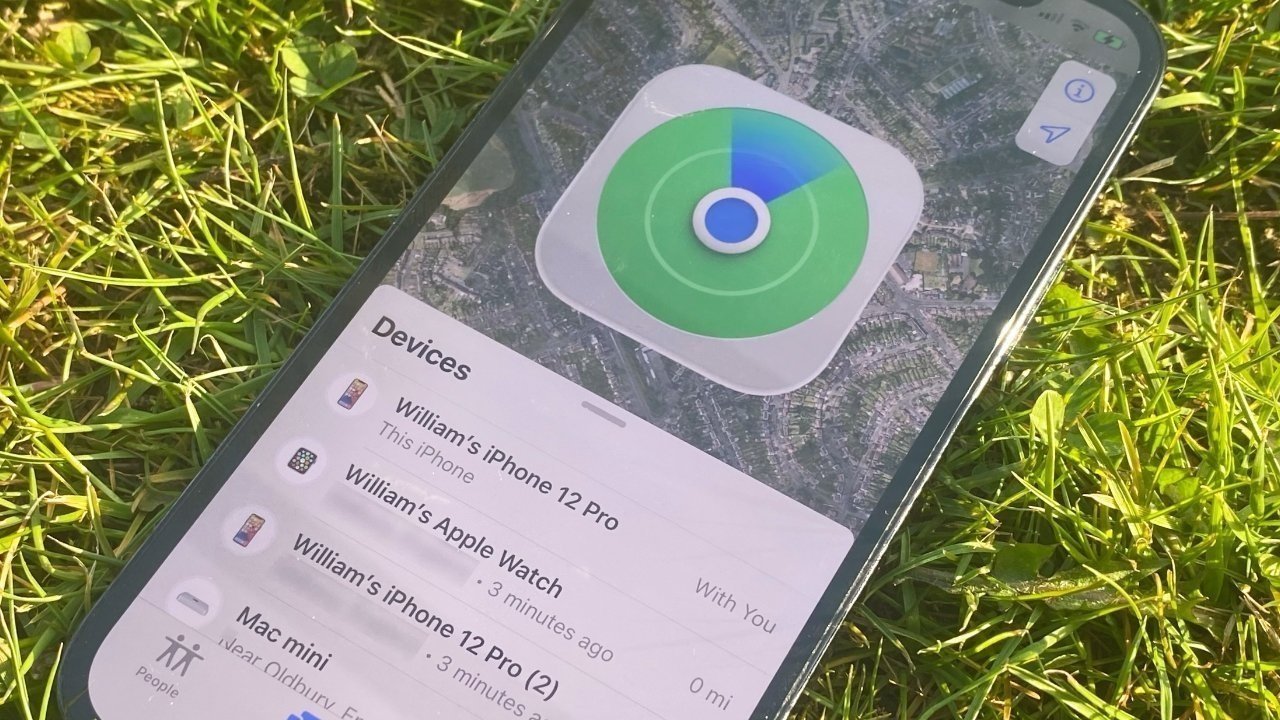The UK has had the bright idea that Apple and others should design a way to stop cellphone thefts — by doing precisely what they've already been doing for years.
There are children starving in the UK, school and theater buildings are literally crumbling, and the government has abandoned a high speed rail effort after spending 14 years and $121 billion on it. Seemingly unable to even address genuine concerns in the country, the UK has been repeatedly trying to look tough by cracking down hard on technology issues it does not understand.
The long list includes nonsense about encryption, and actual lies about its COVID app plans. Now according to the country's tabloid newspaper, the Daily Mail, it's time for Apple, Google, and Samsung to held responsible and design technology solutions to stop smartphone theft.
You know, more than they all are doing now.
London mayor Sadiq Khan and Metropolitan (London) Police chief Sir Mark Rowley have called for a meeting with these Big Tech firms. The companies will be asked to commit to a plan to "design out" cellphone thefts.
"This meeting is an important milestone to developing a practical and long-term solution to ending the menace of mobile phone crime," said Khan, "which we know is driving violence and criminality in our communities - not just in London but across the UK."
It follows a reported rise in phone thefts of 28% over the last year. Unusually, the percentage figure is for once accompanied by some data: 157 cellphones were stolen each day in London.
The idea is that cellphone manufacturers could make it so that, for instance, phones are worthless when stolen. Perhaps the companies could make the phones so that they can't be unlocked except by the owner.
Like they are now. So, presumably it's going to be a short meeting.
For Apple's iCloud lock has long done all of this. Unless an owner is forced or manipulated into unlocking their iPhone, iCloud lock already does everything the UK has just dreamt up.
It is true that people are forced to unlock their iPhones, sometimes even at knifepoint. However, nothing the UK is suggesting would change that.
At present, the market for stolen phones is more in parts. It's conceivable that what the UK really means is that it wants firms to crack down on components, to make it harder to reuse them and so less worth being stolen.
However, that would mean locking down components and creating parts serialization — which is exactly the opposite of the UK's previous demands against proprietary components creating e-waste.
Politicians blathering on about tech never ends well for anybody
This is unlikely to be the end of the UK's posturing instead of governing, but there's also an element of killing time until the country's next General Election. No date has been set for this but by law, it must take place no later than January 2025.
The UK isn't officially a two-party nation, but effectively it is with Conservatives and Labour being very broadly analogous to the Republicans and Democrats. The Conservatives have been in power since 2010, though to this day regularly blame current problems on the previous Labour government.
Following Brexit, countless scandals, and the fastest turnover of Prime Ministers in British political history, media expects the Conservatives are expected to lose the next election. Who knows what will happen at the ballet box, though.
Consequently, to get those votes, the current round of posturing and inaction comes as the government is practically in a lame duck situation. So following the General Election, we may see fewer embarrassing technology gaffs coming from the UK.
But we're not counting on it — and not least because London Mayor Sadiq Khan is a Labour MP.
It seems that the only thing that is almost universal to politicians is a complete lack of knowledge about technology, and the will to try to regulate it anyway.
 William Gallagher
William Gallagher







-m.jpg)






 Bon Adamson
Bon Adamson
 Marko Zivkovic
Marko Zivkovic
 Wesley Hilliard
Wesley Hilliard
 Amber Neely
Amber Neely

 Malcolm Owen
Malcolm Owen






-m.jpg)



17 Comments
So they asked for a meeting? That's it? That's the reason for this disdainful, spluttering article? I don't know why you expect politicians to be fully informed about technological solutions to social problems, but I'd have thought it obvious that one of the ways they get informed is by meeting with technology vendors.
Sadiq Khan hasn't been a Labour MP for many years.
PLEASE make a clear distinction between "News" and editorialising content.
This is obviously the latter, but it's not always as easily distinguished.
A good commentary, save for the fact that "Labour MP" no longer applies. The rest seems spot on.
This is just another bullying, political posturing move by flailing politicians trying to create the appearance that they are doing SOMEthing. "We have a crime problem? Blame the tech companies!" Clearly the mayor and police chief are trying to hide their incompetence behind these moves. Pathetic.
I for one wish governments would do more to contain tech, not less. The EU is forcing to open the App Store is a big win that will over time allow users to load what they want from any source they want. I don't need the tech company to baby me. Cracking down in Google, FB and X privacy and fake news is also needed. If 158 phones are stolen a day in London then absolutely, the government should be involved to find better ways to cut down on theft and recovery. This reads like more of a biased opinion piece, not much in the way of reporting the facts. This writer has gotten it wrong in several stories now (like the one where the iPhone 15 heating problem was not a problem at all till Apple acknowledged it!)